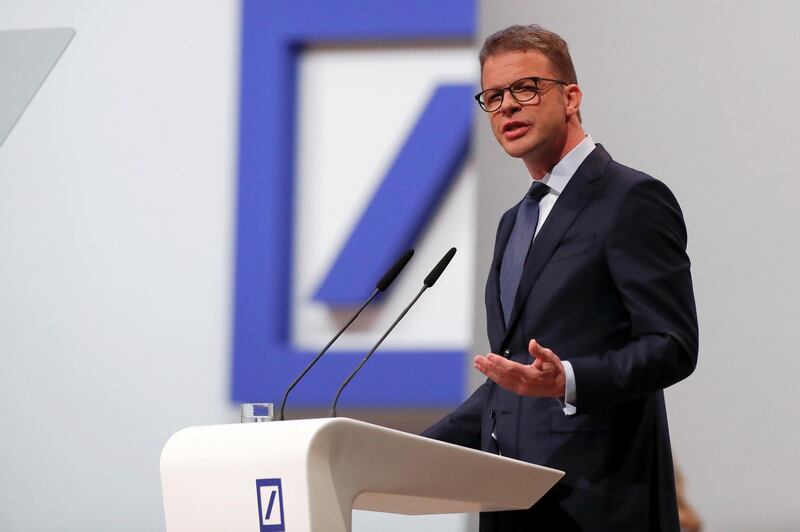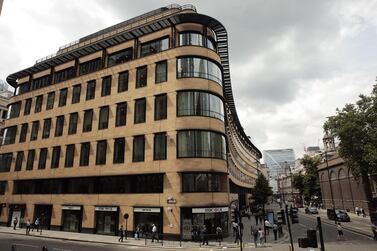Deutsche Bank shares declined for a second day after analysts and investors expressed scepticism about the lender’s ability to reach profit targets and implement a huge restructuring plan.
The troubled German lender was down 5.5 per cent at €6.41 as in Frankfurt trading as of 10.55am, bringing the drop since Monday to more than 10 per cent since the bank announced its overhaul – the biggest two-day decline since March 2017. Deutsche Bank’s riskiest bonds also fell.
The initial euphoria surrounding chief executive Christian Sewing’s sweeping revamp has quickly given way to doubts over whether the German lender can reach its profit goals in a competitive home market. The bank has consistently disappointed shareholders in recent years, and after the overhaul will be focused on servicing companies’ routine financing needs while also withholding dividends for this year and next.
The vast restructuring – which will cause 18,000 job losses – is forecast to cost €7.4 billion (Dh30.45bn) and will shrink the bank’s capital buffers.
“Execution risk seems higher than we initially expected given more headwinds to capital,” Anke Reingen, an analyst at RBC Capital markets, wrote in a note to clients. Deutsche Bank’s plan “appears to leave little room for error”.
Deutsche Bank reaching its 2022 profitability goal is “highly improbable”, given that the lender will probably lose revenue in the process, according to Citigroup analysts. The company is completely exiting some businesses, such as equities trading, and has said the retrenchment could also lead to the loss of revenue in other businesses it wants to keep.
Deutsche Bank is creating what it’s calling a “capital-release unit” to handle the wind-down of non-strategic assets so it can focus on its main businesses. The holdings and related businesses being moved to the unit represented €74bn of risk-weighted assets and €288bn of leverage exposure at the end of last year.
Credit investors are concerned about the fallout from a lower capital buffer even though Deutsche Bank said that it would be in a position to pay coupons on its debt throughout the restructuring. The bank’s riskiest bonds, known as additional tier 1 notes, dropped 3 cents on the euro to 85 cents, the lowest in more than a month, according to data compiled by Bloomberg. The price of credit-default swaps insuring Deutsche Bank’s debt against losses rose for a second day, indicating deteriorating perceptions of credit quality.
Deutsche Bank coordinated its plans with regulators and bases its targets on conservative assumptions, Mr Sewing said in London on Monday.
“Some may say you have heard this before, or at least parts of it,” he told said. “It is different this time, we are different. We are not going to shareholders to share the burden, we are going to manage this transformation organically. We are not denying or turning a blind eye to our weaknesses.”
Rather than tap shareholders to fund the bank’s overhaul, Mr Sewing is freeing up cash by winding down €74bn of assets weighted according to risk to be wound down or sold.
The CEO also signalled that he’s going to link his personal wealth even closer to the fortunes of the bank he’s overhauling on Monday, telling analysts “I want to lead by example. I am personally putting my money where my mouth is”, without giving more details of his planned investment.







